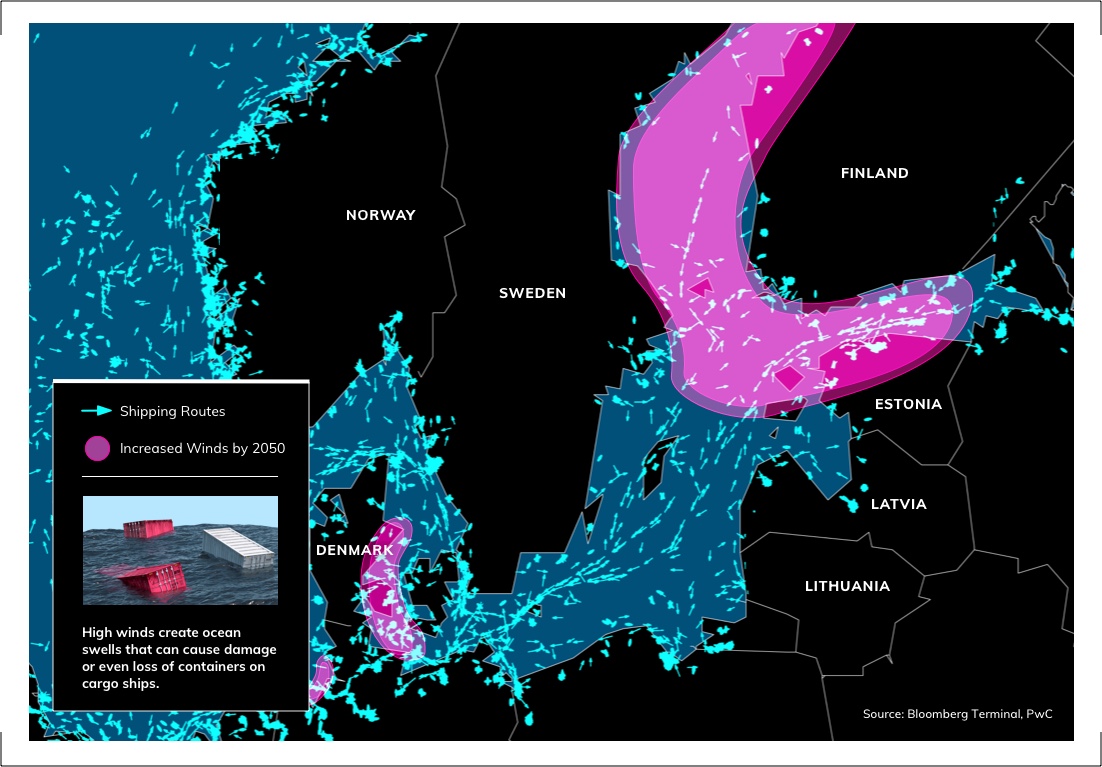Nov 14, 2022
The Winds of Climate Change Could Wreak Havoc on Global Shipping

Challenge
Wind speeds are increasing worldwide. That might be good news for renewable energy producers, but it is an ominous development for global trade. Unchecked climate change could result in 9% of the most traveled shipping routes experiencing a significant increase in wind gusts by 2050, according to PwC research. High winds create high ocean swells that affect navigation, potentially causing damage or even loss of containers on large cargo ships and creating unpredictable delays.
These gusts will be especially acute in Northern Europe, affecting major shipping routes between Sweden and Finland and ports in Wales and on the west coast of the UK such as Liverpool, for example, says PwC. High winds present a global challenge for businesses, since approximately 90% of the world’s goods are transported by sea, and maritime trade is expected to triple by 2050, according to the OECD.
Impact
This increase in wind gusts is a good example of a climate risk blind spot because the risk can seriously impact a company’s value chain well beyond the scope of a company’s owned operations and physical infrastructure, according to Colm Kelly, Global Corporate Sustainability Leader at PwC. Climate change is much larger than just global warming, and a whole series of interrelated climate risks are beginning to unfold, including greater frequency of high winds and increased storm severity.
For business leaders, building resilience to these interrelated risks starts with examining global supply chains and looking at how climate change could affect their businesses in ways that they might not be able to control, says Emma Cox, Global Climate Leader at PwC.
“What the pandemic illuminated is the fragility and interconnectedness of global supply chains and the fact that if one part of your chain is disrupted, it can create a domino effect that negatively impacts your entire business,” Cox says.
Takeaway
"High winds may not capture global media attention like flooding and wildfires, but this climate risk needs to be addressed with the same sense of urgency," says Robert N. Bernard, Climate Risk Modeling, Director, PwC US. That could mean altering shipping routes, selecting alternative ports, or adapting your physical assets so that they are more tolerant of extreme winds.
“You really need to delve into the issues and take a look at your location, your employees, your markets and your consumers,” Bernard advises. “How is climate change affecting them where they are across your entire value chain?"
PwC refers to the PwC network and/or one or more of its member firms, each of which is a separate legal entity. Please see https://www.pwc.com/structure for further details.



